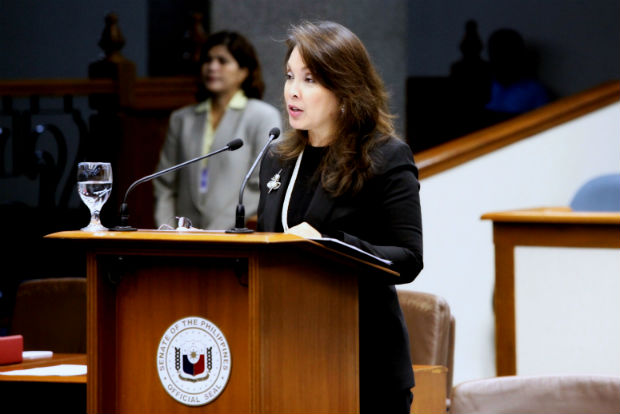Sen. Loren Legarda on Tuesday said the Philippines’ approval of 21 new coal-fired power plant projects in the past five years ran counter to its commitment to reduce carbon emissions and address the factors that contribute to climate change.
According to Legarda, such a situation puts into question the country’s call for sustainable development and deep cuts in greenhouse gas emissions.
The Philippines has been taking an active role in addressing climate change as it is among those that acutely feel its effects, which include extreme weather patterns.
“The Philippines is contradicting itself when it says it wants a strong agreement in climate change yet is allowing the proliferation of new coal power plants. Effectively, by such proliferation we are contributing to our own destruction and we lose the high moral ground as we call on other parties to reduce emissions,” Legarda, chair of the Senate committee on climate change, said in a statement.
UN Framework
She conducted a hearing Tuesday on the United Nations Framework Convention on Climate Change.
Legarda noted that in the past five years, the Department of Environment and Natural Resources granted 21 coal-fired power plants Environmental Compliance Certificates (ECC).
According to Legarda, the Philippines should walk its talk when it came to carbon emission reduction.
The country’s intended nationally determined contribution (INDC) should reflect its strong stance on cutting greenhouse gas emissions as a way of mitigating climate change, she said.
Int’l pact
The INDC pertains to the climate actions that countries intend to take under a new international agreement.
“The Philippines, as third highest in the world in terms of vulnerability to weather-related extreme events based on a 2013 World Bank study, and following its acceptance of the presidency this year of the Climate Vulnerability Forum, must lead by example among developing countries and submit to the United Nations Framework Convention on Climate Change Secretariat an INDC that highlights its commitment to pursue climate justice and equitable growth for all,” Legarda said.
The call for INDCs was first raised during the 19th Conference of Parties held in Warsaw, Poland, in 2013.
Nations are urged to submit individual plans for reducing emissions after 2020. The goal is to limit the global temperature increase to no more than two degrees Celsius above pre-industrial levels.
Since the Philippines heads the CVF, a group of developing countries vulnerable to climate change, it should focus on the gains in addressing climate change and disaster risks, not just vulnerabilities, Legarda said.
These should be shared with other nations, she added.
